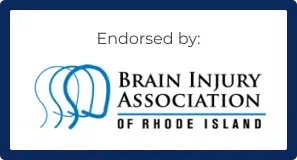Traumatic Brain Injury Risk Factors


Approximately 1.5 million people experience a traumatic brain injury (TBI) every year in the United States, according to the Centers for Disease Control and Prevention (CDC).
An estimated 5.3 million Americans live with a TBI-related disability. These injuries can range from mild to severe. Those who experience mild TBIs often recover fully, while those with a more severe TBI may have lasting disabilities or die.
Although anyone can potentially experience a brain injury, some people are at higher risk than others based on factors like age, gender, occupation, and participation in recreational activities. However, there are steps that people can take to reduce their likelihood of experiencing a TBI.
Who Is Most At Risk For Suffering A Traumatic Brain Injury?
A person’s age and gender can significantly influence their probability of experiencing a TBI, along with a person’s occupation.
Age
The risk of suffering a TBI is present in all age groups. However, the Brain Injury Association of Rhode Island reports the two age groups at highest risk of non-fatal TBIs are zero to four years old and 15 to 19 years old.
According to MedlinePlus, the risk of being hospitalized and dying from a TBI is highest in people aged 65 and older.
Gender
Overall, males are at a greater risk than females for sustaining a TBI. Data from StatPearls reveals that approximately twice as many males experience a TBI.
In some studies, males represented nearly 80 percent of TBI victims. The disparity is most prevalent in teens and young adults, which researchers believe reflects a greater tendency toward aggression and risky behavior in young men.
In older adults, men and women are equally likely to sustain a traumatic brain injury.
Gender also has an impact on outcomes after a TBI. Research indicates that mortality rates are higher for women than for men and that the “degree of damage measured by the Glasgow Coma Scale (GCS)” is worse for females.
However, women tend to have fewer complications, and premenopausal women experience better outcomes from TBI. The authors of the study, which was published in the Chinese Neurosurgical Journal, believe this is due to the protective effect of estrogen and progesterone on brain tissue.
Occupation
Certain occupations present a greater risk for a traumatic brain injury. In the United States, TBIs most often occur in the construction, transportation, and agriculture/forestry/fishing industries.
Military service also poses a significant risk, with 27 percent of service members reporting a traumatic brain injury due to their military service, as reported in Military Medicine. Those who serve in combat are at the greatest risk.
What Activities Put Individuals Most At Risk For TBIs?
In addition to occupational risks, recreational activities can increase the risk of a TBI.
According to the CDC, activities with a high risk for a traumatic brain injury include:
- Riding a motorcycle, bicycle, scooter, snowmobile, or all-terrain vehicle (ATV)
- Contact sports, such as football, ice hockey, or boxing
- Baseball
- Skiing or snowboarding
- Skateboarding or skating
- Horseback riding
Data in Molecular and Cellular Neuroscience indicate that children’s brains are especially susceptible to the damaging effects of a TBI. It’s important to keep children safe during sports and other recreational activities and take any head injury seriously.

Other Risk Factors For TBIs
Additional factors can increase the risk of traumatic brain injury.
Alcohol
Alcohol use is a significant risk factor for TBI. Studies show that of people hospitalized for TBI, between one-third and one-half were intoxicated at the time of their injury. People who drink alcohol have approximately four times the lifetime risk for TBI as those who don’t drink.
Abuse
Unfortunately, many people sustain a TBI due to an injury caused by someone they live with. The Journal of Head Trauma Rehabilitation reveals that, globally, one in three women report intimate partner violence, and 92 percent of blows from an abusive partner are to the head or neck.
These injuries may be underreported, as many women are afraid to report their abusive partner. A person experiencing intimate partner violence may also be at risk for penetrating brain injury from a gunshot wound.
Very young children are also vulnerable to a traumatic brain injury caused by abuse. Shaking, dropping, or throwing a small child can easily lead to a TBI. StatPearls data estimate that 1,200 to 1,400 babies are injured or die each year from head injuries.
Negligence
A TBI can occur from the negligence of another party, which means the at-fault party failed to exercise a level of care that a reasonable person would do in the same or similar circumstances.
Examples include a slip and fall in the workplace, improper maintenance or upkeep in a nursing home, a car accident caused by a drunk driver, or medical malpractice during routine surgery.
How Can You Reduce Your Risk Of Suffering A TBI?
Certain risk factors for traumatic brain injuries, such as your age and gender, can’t be controlled. However, many factors are under your control. The steps you can take to help protect yourself from TBI vary, depending on your age and other risk factors.
People Aged 65 or Older
- Do strength and balance exercises regularly to reduce your risk of a fall.
- Have your eyes checked at least once a year, and ensure that your home is well-lit.
- Fall-proof your home by adding grab bars or railings to stairways, showers, or bathtubs and removing slippery rugs or other hazardous objects.
- Ask your doctor whether any medications or supplements you are taking could increase your risk of a fall.
If you have babies or young children, you can reduce the risk that they’ll sustain a TBI. The Journal of Safety Research reports that falls are the leading cause of TBI in children under the age of four.
Parents of Young Children
- Install safety gates at the top and bottom of staircases.
- Use window guards to keep children from falling out of windows.
- Ensure that playground equipment is installed on a soft surface, such as mulch or sand.
People in all age groups can decrease their chances of sustaining a traumatic brain injury by:
- Wearing seatbelts every time you drive or ride in a motor vehicle
- Using age-appropriate car seats or booster seats for babies and children
- Refraining from driving under the influence of alcohol or drugs
- Wearing a helmet when you engage in high-risk activity, such as riding a bike or motorcycle, skiing, roller skating, or horseback riding
Helmets can’t prevent all cases of TBI. For example, the National Highway Traffic Safety Administration reports that wearing a helmet reduces the risk of TBI by approximately 25 percent to 40 percent in motorcycle accidents.
Although wearing a helmet is certainly important, you should still practice safe driving to protect yourself from traumatic brain injury.
Seeking Medical Treatment After A Brain Injury
If you suffer an injury to the head, seek medical attention promptly. Signs of a serious injury include
- Vomiting repeatedly
- A worsening headache
- Inability to stay awake
- Convulsions or seizures
The longer you wait to seek treatment for a TBI, the more serious your injury may become.
Treatment options for a TBI depend on the severity of the injury.

Treatment may include:
- At-home monitoring and rest
- Limited physical and cognitive activities
- Emergency care to maintain blood pressure, ensure adequate blood supply, and minimize inflammation and bleeding
- Medication to mitigate secondary brain damage
- Emergency surgery to remove blood clots, repair skull fractures, or address other TBI-related complications
- Rehabilitation with a physical therapist, neuropsychologist, or other specialists
TBI treatment addresses the common issues that result from sustaining a brain injury, including the inability to function at home and psychological problems.
Your primary care doctor will discuss the best course of treatment for your traumatic brain injury.


$4,500,000
Recovered for a client who sustained a traumatic brain injury in a car crash.
DO I HAVE A CASE?
If you think you may have a TBI case, contact us now for a FREE consultation